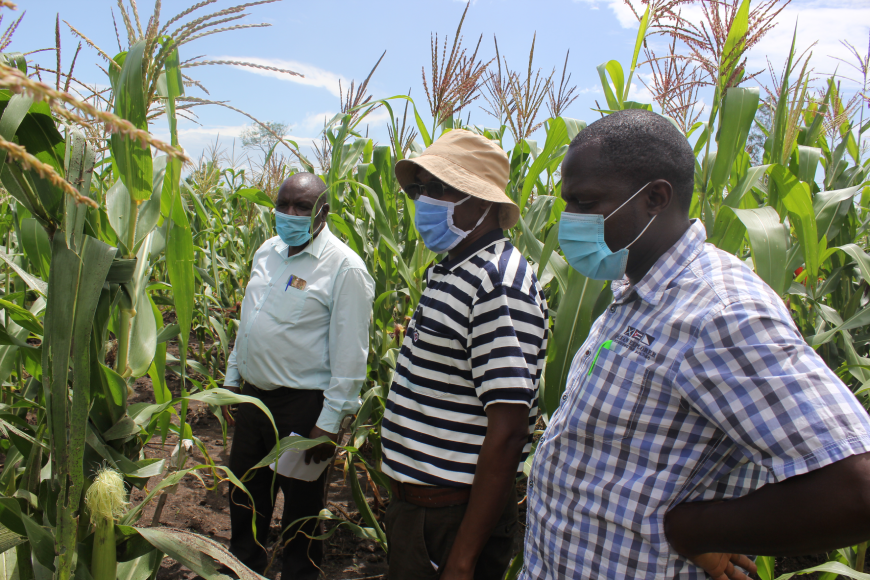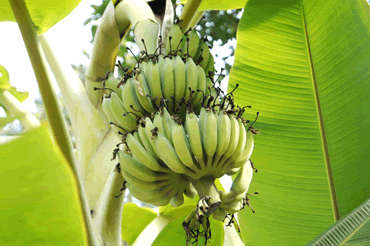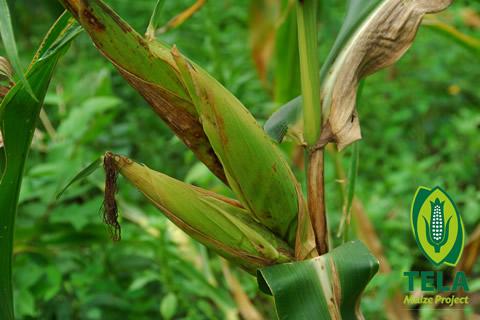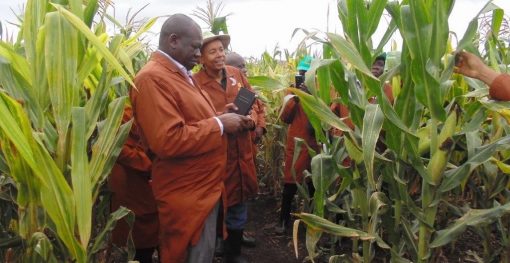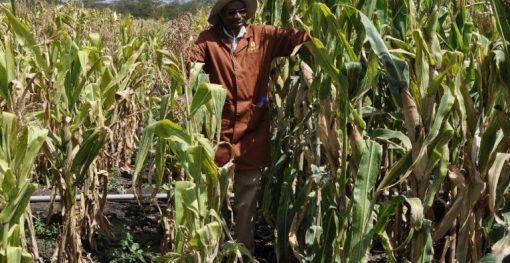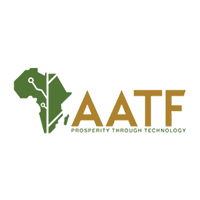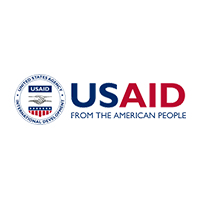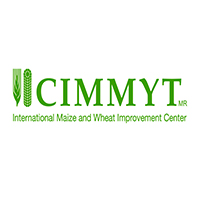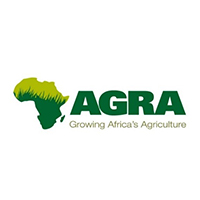AATF Commends Ghana and Nigeria for Advancing Agricultural Biotechnology
(Des Moines, Iowa: November 4, 2024) The governments of Nigeria and Ghana have received praise for their leadership in promoting modern agricultural biotechnology in Africa. Professor Aggrey Ambali, Chair of the African Agricultural Technology Foundation (AATF), commended both countries for their commitment to the research, development, and commercialization of genetically modified cowpeas and maize. Speaking […]
Study Finds No Negative Impact of PBR Cowpea on Ecological Species
(Abuja: October 25, 2024) A new study has confirmed that cultivating transgenic Pod Borer Resistant (PBR) Cowpea does not harm ecological species or disrupt biodiversity. Contrary to concerns raised by anti-technology groups, the study suggests that PBR Cowpea can have a positive effect on the environment. The research, titled Biodiversity Assessment and Environmental Risk Analysis […]
From Despair to Prosperity: Nigerian Farmer’s Success Story with Bt Cowpea
(Keffi – October 30, 2024) – Emmanuel, a young farmer from Keffi, a suburban settlement in Nigeria’s north-central state of Nasarawa, has turned his fortunes around through Bt Cowpea farming—a livelihood he embraced unexpectedly. Initially, he had dreams of a better life after completing his university education, but circumstances led him down a different path, […]
AATF URGES JOURNALISTS TO ADOPT PROFESSIONALISM IN REPORTING SCIENTIFIC BREAKTHROUGHS
(Abuja, November 13, 2024) The African Agricultural Technology Foundation (AATF) has called on Nigerian science journalists to uphold professionalism and accuracy in reporting scientific advancements, particularly as the nation continues to achieve milestones in agricultural biotechnology. Dr. Jean Baptiste, AATF Regional Representative, made the appeal during his goodwill message at the 8th OFAB Nigeria Media […]
AATF Team Monitors TELA Maize Performance on Farmers’ Fields
(Abuja: October 25, 2024) — A team of plant breeders from the TELA Maize project, coordinated by the African Agricultural Technology Foundation (AATF), gathered in Nigeria to assess the performance of the TELA Maize variety on farmers’ fields. The team, consisting of representatives from South Africa, Kenya, Ethiopia, Mozambique, and Nigeria, aimed to interact with […]
AATF Launches Good Agronomic Practices (GAP) Training Program for Nigerian Cassava Farmers
(Fasola, October 8, 2024) The African Agricultural Technology Foundation (AATF) officially launched a Good Agronomic Practices (GAP) training program aimed at enhancing the skills of cassava farmers and processors in southwest Nigeria. The program targets over 6,000 beneficiaries and focuses on empowering women and youths. The weeklong training, facilitated by the National Root Crops Research […]
Nigerian Farmer very happy with TELA Maize, Plans Expansion
From his farm in Niger State, farmer Tamiru Danbaba shares his excitement. “Since 2018, I’ve been cultivating maize and soybeans, but I’ve never seen a variety like TELA Maize. The results have been outstanding.” He further explained, “TELA Maize has reduced my costs on farm chemicals. It withstood the long dry spell in July and […]
Rwanda to develop high-yielding pest- and disease-resistant cassava, maize and potatoes
[Kigali, Rwanda: October 2024]: – The Ministry of Agriculture and Animal Resources (MINAGRI) and the African Agricultural Technology Foundation, AATF have announced a public-private partnership to benefit over 500,000 farm households in Rwanda by developing high-yielding pest- and disease- resistant cassava, maize and potatoes. The partnership, known as the Rwanda Agricultural Biotechnology Programme, aims to […]
Political leadership support is critical for advancing biotechnology development in Africa
[Kigali, Rwanda, September 2024]: African governments have been urged to prioritise investment in biotechnology research and development to address pressing challenges in the sector, including climate change, pests and diseases, and declining soil fertility. The call was made to African Ministers from six countries, including Rwanda, Malawi, Mozambique, Zambia and Eswatini during a ministerial roundtable […]
Project launched to support women and youth in rice production by using climate information for better agricultural decision-making
[Nairobi, Kenya, October 2024]: AATF and its partners have initiated a new partnership project to support women and youth-led micro and medium-sized businesses in rice farming and production to use precise climate information during the cultivation and production stages of rice. The aim of the project is to help these businesses use climate data such […]
WALL STREET JOURNAL: Securing One of the World’s Staple Food Crops
As climate change impacts corn production, hybrid seed technology could help improve yields and combat food insecurity around the world. Sinelizwi Fakade is a farmer based in South Africa’s Eastern Cape. Like hundreds of thousands of growers across the African continent, he’s well acquainted with the usual pressures of production and yield for staple crops […]
Protected: Food Security: FG, AATF launch TELA maize, to save $256m annually from pesticide importation
There is no excerpt because this is a protected post.
OFAB Equips Chapter Coordinators with Advanced Advocacy and Science Communication Skills in Addis Ababa
[August 2024] AATF, through the OFAB Project, conducted a training workshop in Addis Ababa, Ethiopia, for 34 participants including 10-chapter coordinators and staff from nine countries: Kenya, Tanzania, Burkina Faso, Malawi, Nigeria, Ghana, Mozambique, Ethiopia, and Rwanda. The training focused on advanced advocacy, science communication, and impact story generation thereby fostering an enabling environment for […]
Rwanda to host the second edition of the African Conference on Agricultural Technologies (ACAT) in 2025
ACAT advocates for agricultural technology transfer, uptake of innovations and practical solutions to address farmer productivity challenges in Africa. The Conference highlights the centrality of science, technology, and innovation (STI) that is key to tackling Africa’s agricultural challenges. “As a country, we are pleased to co-host the second edition of ACAT 2025 and are honored […]
African researchers call for depoliticization of research to maximize the benefits of Science, Technology, and Innovation (STI)
[Kigali, Rwanda] Leading agricultural researchers from nine African countries have gathered in Kigali, Rwanda, this week for a Strategic Dialogue on Agricultural Technologies in Africa. The assembly convened experts from Kenya, Tanzania, Burkina Faso, Nigeria, Ghana, Malawi, Rwanda, Mozambique, and Ethiopia. Held under the theme “Strategic Dialogue on Biotechnology Research in Africa’s Agricultural Systems,” the […]
PRESS RELEASE: Delivering transgenic drought-tolerant and insect-protected maize varieties to African farmers
[Mpumalanga, South Africa, April 2023]: AATF has reiterated its commitment to deliver transgenic drought-tolerant and insect-protected maize varieties to caution African farmers from the impact of climate change on their productivity and enhance their livelihood. AATF Executive Director, Dr Canisius Kanangire reaffirmed the commitment while addressing the 5th TELA Maize Project Annual Review and Planning […]
NEW TIMES RWANDA: How agricultural biotechnology could boost food security
GM crops have gene(s) inserted from the same or unrelated organism using genetic engineering methods, according to the UN Food and Agriculture Organisation (FAO). These genes, FAO says, confer beneficial traits such as pest resistance, ability to grow in extreme and unfavourable conditions and increased nutrient levels among others. Take an example of a GM […]
Seed producer asks Nigeria to go hybrid to boost maize production
(Kaduna: October 5, 2022) Nigeria will achieve self-sufficiency in maize production when farmers embrace hybrid varieties, a leading seed producer has said. Mr. Brighton Karume, the managing director of ECOBasic Seeds Limited, said productivity was hampered by farmers’ reliance on traditional varieties that are not resistant to disease, pests and drought. Addressing a press conference […]
Developing a bacterial wilt resistant banana for smallholder farmers in Africa
by AATF Africa Since the disease was discovered, banana farmers have used several cultural methods such as sanitary measures to try and control its spread without much success. As they say necessity is the mother of invention, and scientists have had no option but to explore a lasting solution to this malady. This led to the […]
MLN Diagnostics and Management Project
Protecting maize against drought and insect damage
ABOUT THE PROJECT
Maize Lethal Necrosis Disease (MLND) is a key regional challenge that continues to bring havoc to farmers’ maize grain harvest and threatens food security in the eastern African region. It causes yield loses of up to 100% and has been registered as a threat to food security in the region. MLND is caused by the co-infection of Maize Chlorotic Mottle Virus (MCMV) and any of the Potyviruses infecting cereals, especially Sugarcane Mosaic Virus (SCMV). The disease was reported in Kenya in September 2011, and later in Tanzania, Uganda, Rwanda, DR Congo, South Sudan and Ethiopia.
MLN pathogens can be transmitted by insect vectors and also through contaminated seed. Some developed countries have managed the disease through strategies that include combining tolerant varieties, crop rotation, and having maize free seasons to reduce the insect vector pressure that transmits the disease. However, in eastern Africa, the epidemic is aggravated by little access to MLN tolerant maize varieties by farmers and year-round cultivation of maize, allowing transmission via insect vectors, among others.
AATF and AGRA are co-leading efforts towards supporting the commercial seed sector in Kenya, Uganda, Tanzania, Rwanda and Ethiopia in production of MCMV-free maize seed, as well as promoting the use of certified seeds by farmers in respective countries.
The Project is coordinated by the International Maize and Wheat Improvement Centre (CIMMYT), under the USAID-funded MLN Diagnostics and Management Project.
AATF PROJECTS
TELA Maize
TAAT Maize
TAAT Policy Enabler
PBR Cowpea Project
MLN Project
OUR CONTRIBUTION

Control the spread of Maize Chlorotic Mottle Virus (MCMV) in MLN-endemic countries of Eastern Africa while preventing its spread to MCMV from entering non-endemic countries especially in Southern Africa.

Support the commercial seed sector in MLN-endemic countries in producing MCMV-free commercial seed and Promote the use of clean certified hybrid seed by farmers.

“If the industry does not get systematic and standardized scientific steps and operating procedures, decisions on control and management of MLN will be subjective.” – Erick Tegei, Quality Assurance Manager, Kenya Seed Company
PROJECT BENEFIT
![]()
FARMERS
Farmers can now control loss on harvest through use of and access to clean, certified MLN tolerant maize varieties.
![]()
BUSINESSES
Commercial farmers can now obtain maximum maize productivity by reducing/mitigating MLN disease incidences in their farms through supply chains of seed companies.
![]()
SOCIETY
Increased levels of maize production that ensures the region is relatively food secure.
PROJECT HIGHLIGHTS
![]()
0
%
Number of seed companies engaged in MLN management and MCMV free seed production![]()
0
+
Number of maize seed out-growers engaged in MCMV-free seed production training![]()
0
+
Number of farmers engaged through field days & training on MLN management awareness![]()
0
%
Level of uptake and use of MLN Management SOPs by seed companies engaged
FIELD & IMPACT STORIES
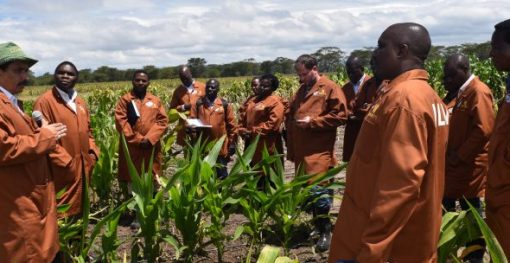
Training on MLN Rapid Diagnostic Kits and MLN-Free Seed Production in Kenya
Published on 2nd May 2020
Agricultural institutions partner to curtail spread of MLN in Sub-Saharan Africa
Published on 26th April 2017
Efforts towards saving maize farmers $300million yield loss caused by MLN Disease
Published on 26th April 2017
Need more info on this?
Get in touch with us for more information.
Fill out the contact request form & we’ll get back to you.
PROJECT PARTNERS
INFORMATION AND RESOURCES
Maize lethal necrosis (MLN): Efforts toward containing the spread and impact of a devastating transboundary disease in sub-Saharan Africa
SOPS – MLN disease portal
1. Technical Manual on MLN Management: Developed in collaboration with partners; awaiting publishing.
2. Book Chapter on Emerging Crop Diseases in collaboration with the University of Cambridge: Published by the American Phytopathological Society (APS) and has already been copyedited. Currently at the printer.
3. 2 Manuscripts awaiting review and publishing. Data was analysed from ODK platforms, analysed and manuscripts drafted.
PROJECT MANAGEMENT
Jonga Munyaradzi
Project Coordinator
J.Munyaradzi@aatf-africa.org
PROJECT INVESTORS

The United States Agency for International Development (USAID), one of the original funders of AATF, supports the Nitrogen-Use Efficient, Water-Use Efficient, Salt-Tolerant Rice Project; Pod-Borer Resistant Cowpea Project; and the Water Efficient Maize for Africa project. USAID supports the MLN Diagnostics and Management Project through CIMMYT. USAID also supported the Striga Control in Maize project as part of the US government’s Feed the Future initiative.
CALL US TODAY
254-20 422 3700
NAIROBI, KENYA
Naivasha Rd
EMAIL
aatf@aatf-africa.org


